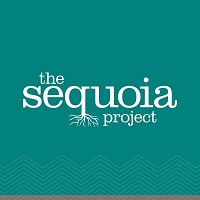 Workgroup Will Develop Implementation Guides That Build On Industry Guidance Already Being Adopted To Facilitate More Interoperable and Useful Health Information Exchange
Workgroup Will Develop Implementation Guides That Build On Industry Guidance Already Being Adopted To Facilitate More Interoperable and Useful Health Information Exchange
The Sequoia Project (@sequoiaproject), a non-profit and trusted advocate for nationwide health information exchange, announced the new Data Usability Workgroup to tackle barriers to interoperability with an open call for participation in advance of the first kick-off call on Thursday, October 29 at 3:00 p.m. ET.
The workgroup, which is part of The Sequoia Project’s Interoperability Matters cooperative, will develop specific implementation guidance on clinical content for healthcare professionals in order to improve health information exchange. The Sequoia Project encourages all healthcare and interoperability stakeholders to participate to ensure development of comprehensive and inclusive guidance that will further improve the workflows and usability of data exchanged among healthcare communities and networks.
“We’re excited to work with the broader healthcare and health IT community to address important barriers to interoperability,” said Mariann Yeager, CEO of The Sequoia Project. “We value input from all stakeholders who have successfully laid the infrastructure of sharing, and are ready to take a closer look at how we can improve the value of the data actually exchanged across that infrastructure. We invite differing views and know that the workgroup will reach a consensus for what’s best for the public good, not only for immediately enhancing the usability of data exchanged today, but laying the groundwork required to deliver on the promise of future technologies such as machine learning and artificial intelligence.”
The first goal of the Data Usability Workgroup is to develop three implementation guides focusing on data usability requirements for provider-to-provider, provider-to-public health agency, and healthcare entity-to-consumer information exchange. Since these use case topics are broad, the workgroup will identify priority elements to address within each of these use cases for its first deliverable.
“This new workgroup is a broadening, next evolution of a similar previous industry effort I was a part of in 2018,” said Dr. Steven Lane, clinical informatics director, privacy, information security and interoperability at Sutter Health and chairman of The Sequoia Project Board of Directors. “That small, but passionate group has reached consensus on guidance to improve interoperable data exchange across their users, and now The Sequoia Project will build on this work to achieve even greater government and industry participation and adoption of the future implementation guides.”
The workgroup will meet every Thursday through April 1, 2021 and is open to all interested public and private stakeholders, regardless of any affiliation with The Sequoia Project, ensuring diverse membership across the healthcare landscape. The meeting schedule will be revisited in April for Phase 2. Participation is free and open to the public. For more information on how to participate in the Data Usability Workgroup, join the kickoff call on Thursday, October 29, 2020 at 3:00 p.m. ET and visit the website to complete the volunteer registration form.
About The Sequoia Project
The Sequoia Project is a non-profit, 501c3, public-private collaborative chartered to advance implementation of secure, interoperable nationwide health information exchange. The Sequoia Project focuses on solving real-world interoperability challenges, and brings together public and private stakeholders in forums like the Interoperability Matters cooperative to overcome barriers. Sequoia also supports multiple, independently governed interoperability initiatives, such as the Patient Unified Lookup Service for Emergencies (PULSE), a system used by disaster healthcare volunteers to treat individuals injured or displaced by disasters. The Sequoia Project is also the Recognized Coordinating Entity (RCE) for the Office of the National Coordinator for Health IT’s Trusted Exchange Framework and Common Agreement (TEFCA), for which it will develop, implement, and maintain the Common Agreement component of TEFCA and operationalize the Qualified Health Information Network (QHIN) designation and monitoring process.
